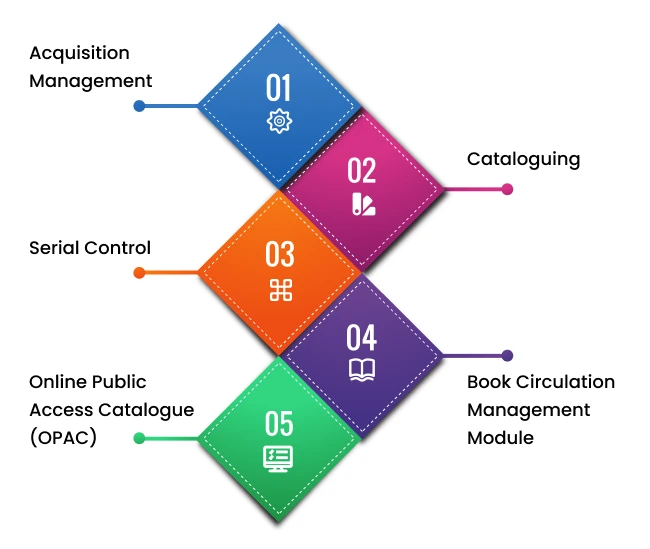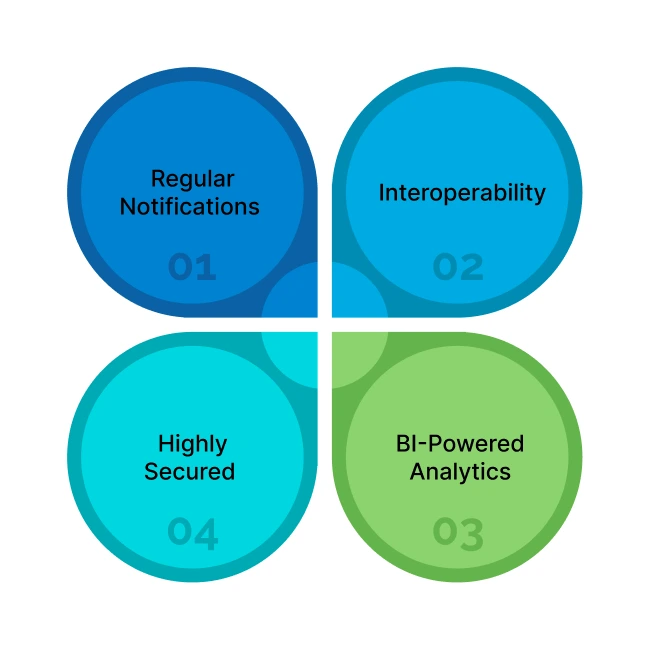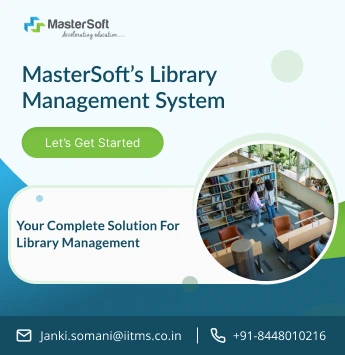04, Nov 2024
Libraries hold considerable significance in today’s highly digitalised world as they provide a central repository of knowledge and information. Students can access diverse materials beyond books, including journals, newspapers, research articles, etc.
However, organising all such materials manually is a time-consuming and exhausting task; hence, they require a robust tool like the library management system. Consequently, institutes can streamline day-to-day library cataloguing, book circulation, and other varied activities.
But what is a library management system? And how does it benefit institutes’ stakeholders? Let us find out:
What is a Library Management System?
A library management system is an advanced software solution that has been designed to simplify the daily operations of a library. It provides a centralised platform, enabling institutes to streamline core activities such as cataloguing, user management, circulation, and reporting.
As a result, librarians can enter the details of books and other materials specifically, making the book searching and retrieval process easier for students. What’s more, they can keep track of the books, including who borrowed them and who is yet to pay the overdue fines.
On the other hand, the system sends reminders to students regarding book returns and late fees, enabling them to avoid late fines. Also, it helps to conduct library management, wherein the library staff can ensure accurate records and reduce the risk of lost or misplaced items.
For example, MasterSoft’s library management system is one of the most prominent library software that reduces administrative workload and ensures excellent user experience. Therefore, it is only fitting to take a look at the essential functionalities.

Essential Functionalities of MasterSoft’s Library Management System
1. Acquisition Management
Determining the number of books and articles, contacting the vendors, and maintaining a database of the items are central to library acquisition. It is a time-consuming and labour-intensive task.
Fortunately, the library management system proves to be an optimum solution as it facilitates acquisition management effectively. For instance, it helps to maintain an organised database of vendors and their contact information and carry out the following process:
- It generates purchase orders for the required materials, specifying the details such as quality, delivery terms, and price.
- Librarians can send their requirements for particular books, articles, and journals to various vendors and choose a suitable vendor as per the best prices.
- The system records the receipt of the materials and verifies their quantity and condition against the purchase order.
- It generates invoices, processes payments, and creates transaction-related reports.
2. Cataloguing
Finding the right book or learning materials in the library can be time-intensive, especially due to the large collection and lack of effective organization. That is where the library management system can play a key role by streamlining the cataloguing process.
Consequently, the system facilitates quick and accurate data entry as per specific fields like title, author, and ISBN. Students and other stakeholders can access various library materials from a centralised location through filter options, such as subjects, authors, or publishers.
Besides, digital cataloguing automates various administrative tasks, including data entry and record creation. As a result, it helps to reduce inconsistencies and errors in catalogue records.
How Does MasterSoft's Library Management System Help Students To Enhance Learning Experience?
3. Serial Control
Serial control deals with managing subscriptions to periodicals, including articles, journals, newspapers, and magazines. It covers various activities related to processing, acquisition, and serial publication tracking.
Furthermore, it helps streamline the budget generation of a department or section and manages articles and journal requests from OPAC. It places and manages subscription orders with vendors, which involves renewing and cancelling requests.
In fact, the LIB-MAN system ensures the effective automation of serial data, enabling users to locate and access serial publications accordingly. What’s more is that it helps librarians retrieve detailed information and MIS reports, enhancing productivity.
4. Book Circulation Management Module
The manual process of recording the issuing of books and ensuring the timely return of borrowed books is tedious and repetitive. On the contrary, using a modern mechanism involving RFID tags is a more efficient and accurate solution.
RFID, or Radio Frequency Identification tags, are small electronic tags that librarians can attach to books or other learning materials. The librarian scans the tag when students check out or return the library materials, and the information gets automatically recorded in the institute’s system. In effect, it leads to improved library circulation efficiency and the following advantages:
- Librarians can scan multiple items quickly and simultaneously, accelerating the borrowing and returning process.
- RFID tags in library cards help to verify the students' identification and record the details of the books they check out or borrow.
- It helps to track the location and movement of the books and other materials, preventing the loss or theft of the material and improving inventory management.
- It provides self-service check-outs and easy returns, reducing the workload for librarians.
Top Reasons Your Library Needs A Library Management System
5. Online Public Access Catalogue (OPAC)
An integral component of the library management system is the Online Public Access Catalogue (OPAC), enabling students to access books and varied learning resources remotely. Moreover, it helps them access library catalogues from anywhere, anytime.
All they need is an internet connection and an electronic device, wherein they can log in with valid credentials. They can search specific materials through advanced search options (author, title, subject, keyword) and check their availability.
Furthermore, Mobile OPAC, or M-OPAC, is a mobile-based application that helps stakeholders search books through their smartphones. Schools, colleges, and libraries can use the mobile application to upgrade their library and book databases on the M-OPAC cloud.

Advantages of Library Management System
1. Regular Notifications
The software sends timely notifications to students, reminding them of the overdue notices regarding the borrowed materials. Also, it sends students alerts about the arrival of new items or materials that they have requested.
2. Interoperability
The system has been built specifically to align with the latest fundamental standards, such as MARC21 and AACR2, which ensure interoperability with different systems. On top of that, it accommodates a wide range of cataloguing methods and materials.
3. Highly Secured
It has robust security features such as user authentication, role-based access control, regular backups, malware protection, and protection of student and vendor data.
4. BI-powered Analytics
Bi-powered analytics elevates the library management modules’ overall capabilities through data-driven insights, predictive analytics, and identifying emerging trends.
Conclusion
MasterSoft’s library management system revolutionises the way libraries function by automating various activities, enhancing user experience, and organising workflow. It empowers educational institutions and students by adapting to their evolving demands and trends.
Additionally, advanced search functionalities and mobile operability ensure easy accessibility of books and library resources.
Still wondering what it takes to get a NIRF ranking?
Mobile: 08448010216
Email: janki.somani@iitms.co.in










